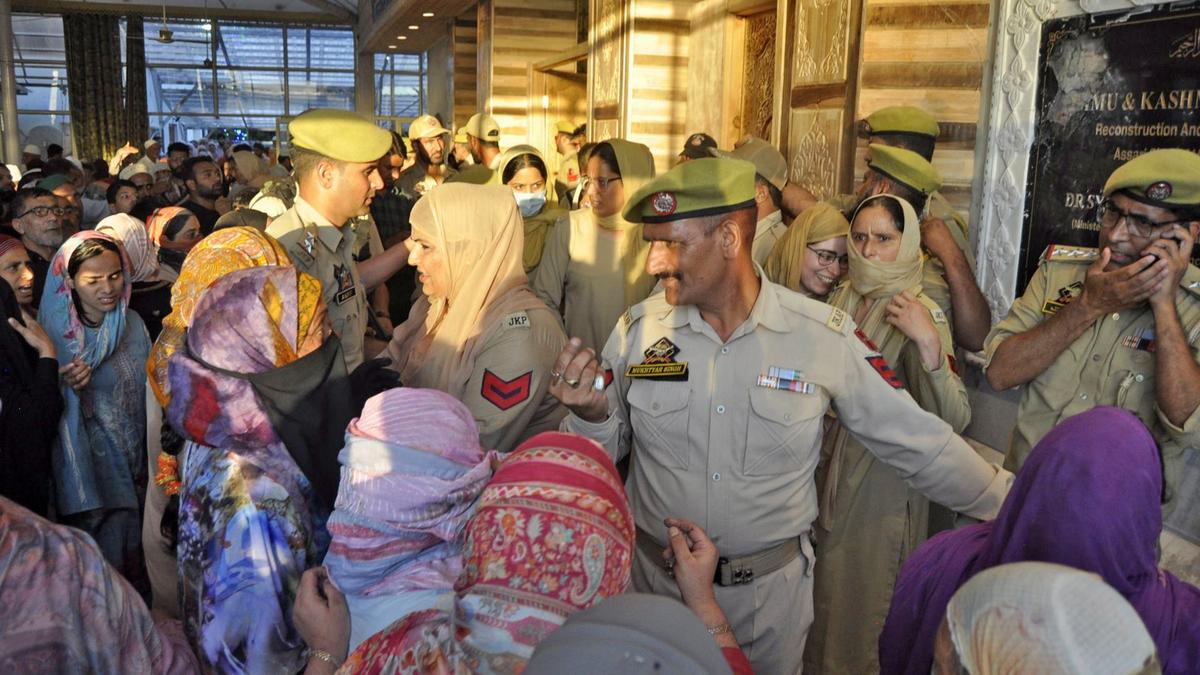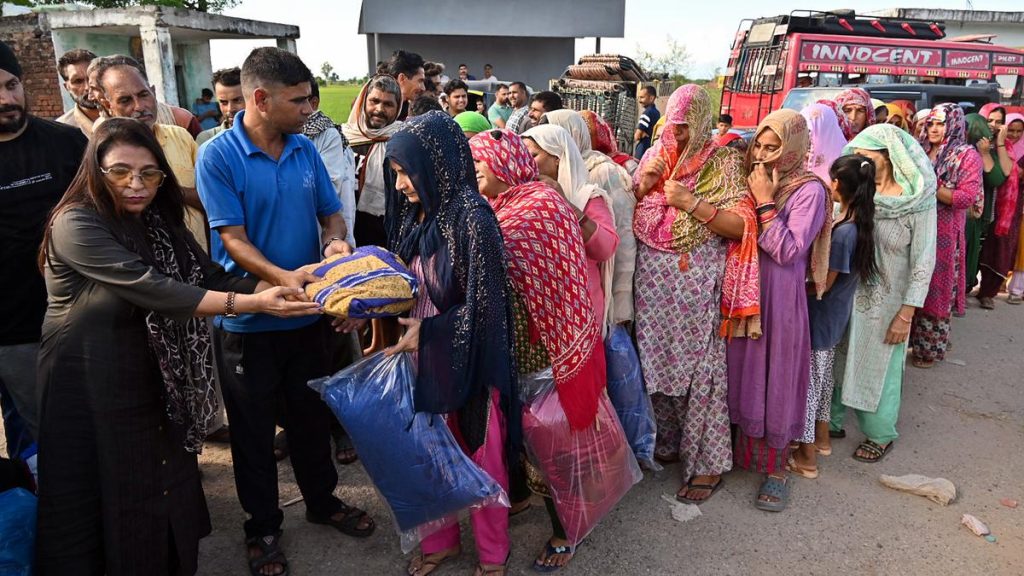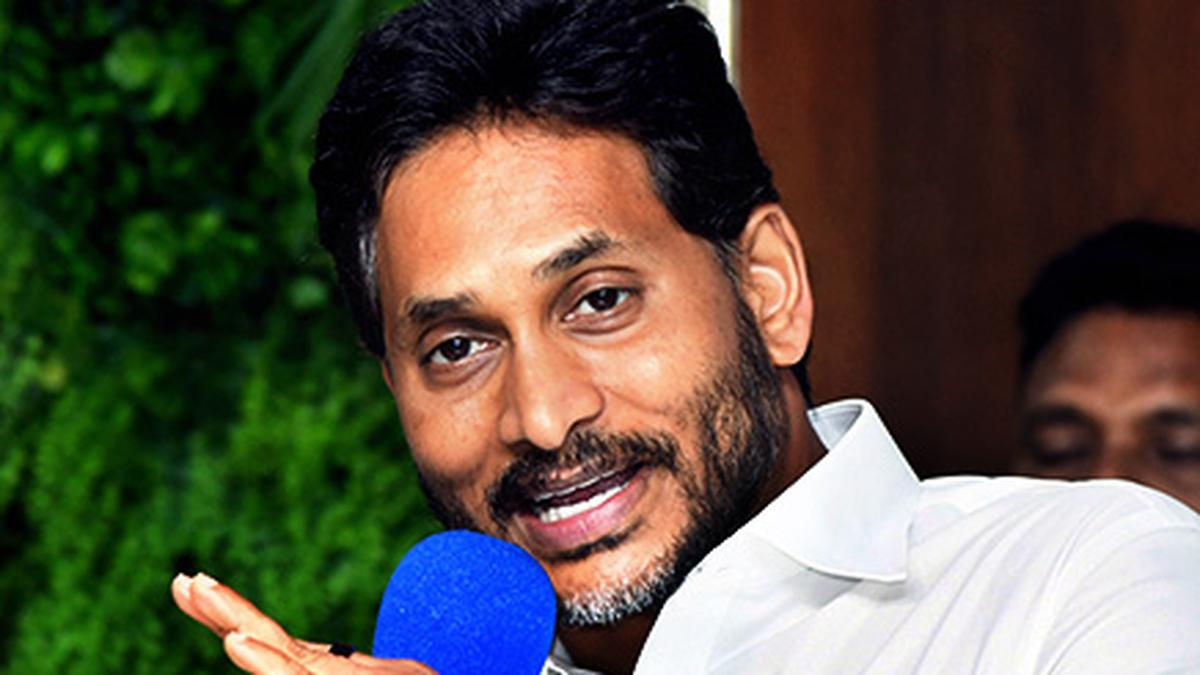Now Reading: National Emblem Vandalised at Hazratbal Shrine
-
01
National Emblem Vandalised at Hazratbal Shrine
National Emblem Vandalised at Hazratbal Shrine

Rapid Summary
- On September 5, 2025, protesters at hazratbal Shrine in Srinagar vandalized the National Emblem engraved on a plaque during demonstrations.
- The incident followed Jammu & Kashmir Chief Minister Omar Abdullah’s criticism of Lieutenant Governor Manoj Sinha for denying a holiday aligned with the Islamic calendar for Eid-e-Milad.
- Darakshan Andrabi, BJP leader and chairperson of J&K waqf Board, criticized the vandalism and accused National Conference (NC) leaders of instigating protests.
- NC leader Tanvir Sadiq argued that placing sculpted figures at the shrine contradicts Islamic beliefs. He condemned Ms. Andrabi’s threats against protesters but reiterated concerns over religious sentiments being hurt.
- Built by Sheikh Muhammad Abdullah in the 1970s, Hazratbal shrine-formerly associated closely with NC-has seen governance transition to Waqf Board leadership after J&K became a Union Territory in 2019.
- Ms. Andrabi warned that those involved in violence may face FIRs under stringent legal actions such as the Public Safety Act and potential barring from prayers at the shrine. She vowed to protest if authorities fail to act on her demands.
- Protests inside Hazratbal Shrine escalated after Ms. Andrabi’s remarks about possible prosecution of worshippers involved in dissent.
Indian Opinion Analysis
The incident reflects ongoing tensions between political parties and religious administration post-jammu & Kashmir’s restructuring into Union Territory status.Vandals targeting symbols like the national Emblem signal deep-rooted grievances related to governance and ideological differences over religious practices at sacred sites such as Hazratbal Shrine.
Key themes include: competing narratives around preserving cultural-religious integrity versus accusations of politicization; public backlash over perceived insensitivity regarding important holidays like Eid-e-Milad; and fears surrounding polarization exacerbated by conflicting authority among elected leaders (such as CM Abdullah), appointed officials (Lieutenant Governor), and organizations like Waqf Board.
While Ms. Andrabi emphasizes strict accountability via legal frameworks for vandalism under her jurisdictional role, counter-responses from NC underscore emotional sensitivities tied to faith-based matters-a delicate balance policymakers must navigate cautiously in this context.
Read more: Click Here

























